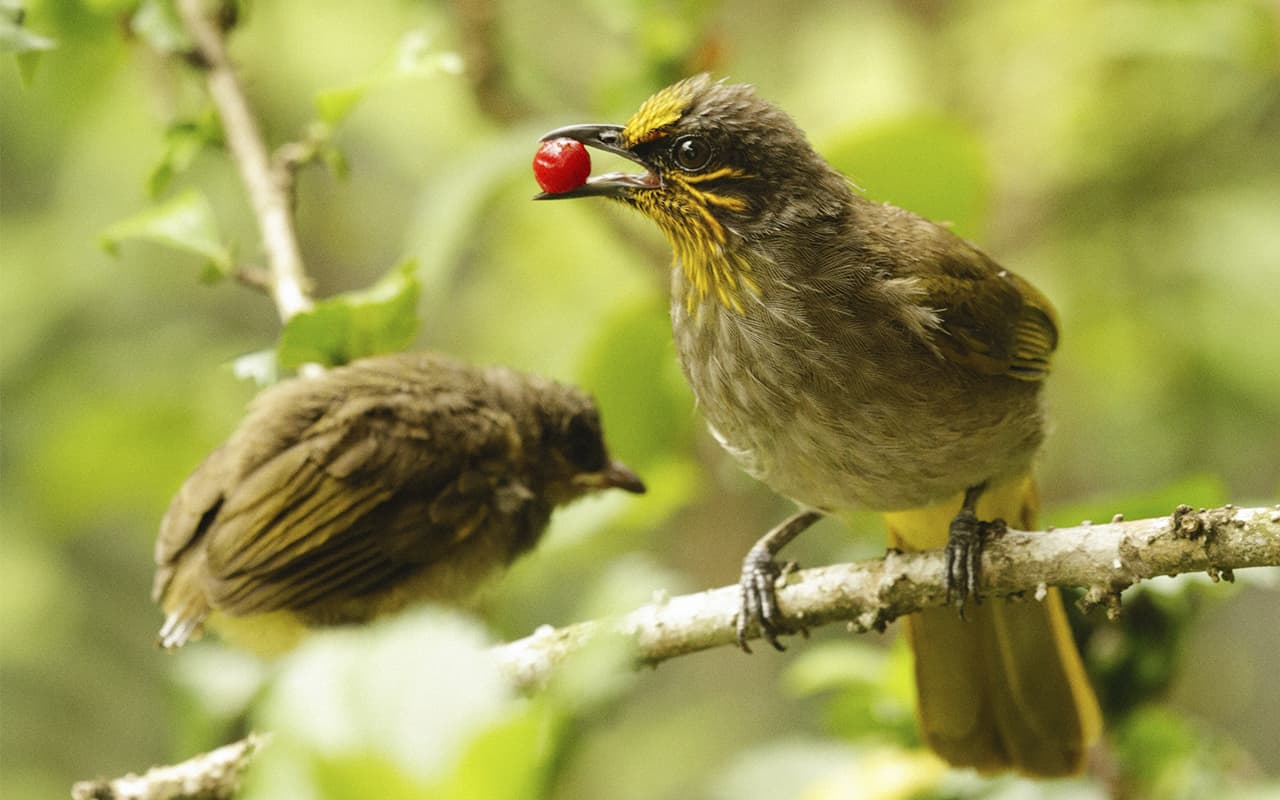Birds are often cherished as pets and admired in the wild for their beauty, songs, and graceful flight.
However, for some individuals, especially those who have avian allergies, birds can pose a significant health risk.
Avian allergies, particularly avian asthma, are allergic reactions triggered by allergenic proteins commonly found in certain bird species.
In this article, we will explore avian asthma, the allergenicity of specific birds, its symptoms, and various coping strategies for individuals who experience allergic reactions to birds.
Avian Asthma: A Unique Allergic Response
Avian asthma, also known as bird-keeper’s lung or pigeon fancier’s lung, is a specific form of allergic asthma.
Unlike more common allergies to pollen, dust mites, or pet dander, avian asthma is a response to proteins found in the feathers, dander, droppings, and saliva of birds.
For individuals who are sensitized to these allergens, exposure to birds can trigger a range of respiratory symptoms and potentially lead to asthma attacks.
Allergenic Birds: Who Poses the Most Risk?
Not all bird species are equally allergenic, and the extent of allergenicity can vary from person to person. However, some birds are more likely to cause allergic reactions than others.
The following bird species are known to be among the more allergenic:
- Pigeons: Pigeons are notorious for their allergenic properties. The proteins found in pigeon feathers, droppings, and dander can be particularly potent allergens.
- Cockatiels: These popular pet birds are known for producing allergenic proteins, particularly in their feathers and dander.
- Parrots: Parrots, with their colorful plumage and popularity as pets, can also be allergenic. Their feathers and dander are common sources of allergens.
- Canaries: These vibrant birds may trigger allergic reactions in sensitive individuals due to proteins in their feathers and dander.
- Budgerigars (Budgies): Budgerigars, often kept as pets, are another potential source of avian allergens.
- Cockatoos: The feathers, dander, and saliva of cockatoos can contain allergenic proteins that may affect individuals with avian allergies.
It’s important to note that not everyone who comes into contact with these birds will develop avian allergies. Allergenicity can vary depending on the individual’s immune system and their degree of exposure to the allergens.
Symptoms of Avian Asthma
Avian asthma shares many similarities with other forms of allergic asthma, including symptoms such as:
- Wheezing: Wheezing is a common symptom of avian asthma and is characterized by a high-pitched whistling sound when breathing.
- Coughing: Individuals with avian asthma may experience persistent coughing, which can be particularly bothersome, especially in the presence of birds.
- Shortness of Breath: Shortness of breath and difficulty in breathing may occur when exposed to bird allergens.
- Chest Tightness: Avian asthma can lead to a feeling of tightness or discomfort in the chest.
- Runny or Stuffy Nose: Allergic rhinitis symptoms, such as a runny or stuffy nose, can be present in avian asthma cases.
- Eye Irritation: Itchy, watery eyes are another common symptom of avian allergies.
- Asthma Attacks: In severe cases, avian asthma can lead to asthma attacks, characterized by acute and potentially life-threatening breathing difficulties.
Symptoms of avian asthma can vary in severity from mild to severe, and they may become more pronounced with prolonged exposure to birds or in individuals with heightened sensitivity to avian allergens.
Coping Strategies for Avian Allergies
If you or a loved one suffers from avian allergies or avian asthma, it’s essential to take steps to manage and reduce exposure to allergenic birds.
Here are some coping strategies:
- Consult an Allergist: If you suspect you have avian allergies, it’s crucial to consult with an allergist for proper diagnosis and management. Allergy testing can help identify the specific bird allergens to which you are sensitive.
- Minimize Bird Exposure: If you have avian allergies, consider limiting your exposure to birds, both pet and wild. This may involve rehoming your pet bird or avoiding locations where you might encounter birds.
- Create Allergy-Free Zones: Designate specific areas in your home as “allergy-free zones” where birds and their allergens are not allowed. Using air purifiers in these areas can help reduce allergen concentrations.
- Use HEPA Air Purifiers: High-efficiency particulate air (HEPA) air purifiers are effective at capturing airborne allergens, including bird feathers, dander, and droppings. Use HEPA air purifiers in your home, especially in bedrooms and living spaces.
- Frequent Cleaning: Regularly clean your home to remove allergenic bird droppings and feathers. Use a vacuum cleaner equipped with a HEPA filter to prevent allergens from being reintroduced into the air.
- Wash Hands and Clothes: After handling birds or being in areas with birds, wash your hands and change your clothes to prevent allergens from being transferred to other surfaces or inhaled.
- Medication: Depending on the severity of your avian allergies, your allergist may recommend medications such as antihistamines or bronchodilators to manage symptoms.
- Consider Hypoallergenic Birds: Some bird species are considered hypoallergenic because they produce fewer allergenic proteins. These birds may be a better option for individuals with avian allergies.
- Improve Ventilation: Ensure proper ventilation in your home to reduce indoor air pollution. Ventilation can help disperse and dilute airborne allergens.
- Pet Bird Care: If you choose to keep a pet bird despite allergies, maintain good hygiene practices for both yourself and your bird. Regularly clean the bird’s cage, provide proper ventilation, and groom the bird to minimize the release of allergenic proteins.
In Conclusion
Avian asthma and allergies can significantly impact the lives of individuals who are sensitive to bird allergens.
Understanding the allergenicity of specific bird species, recognizing the symptoms of avian asthma, and implementing coping strategies, including the use of HEPA air purifiers, can help individuals manage their allergies and improve their overall quality of life.
If you or someone you know is experiencing avian allergies, consult an allergist for proper diagnosis and guidance on managing these allergic reactions effectively.



